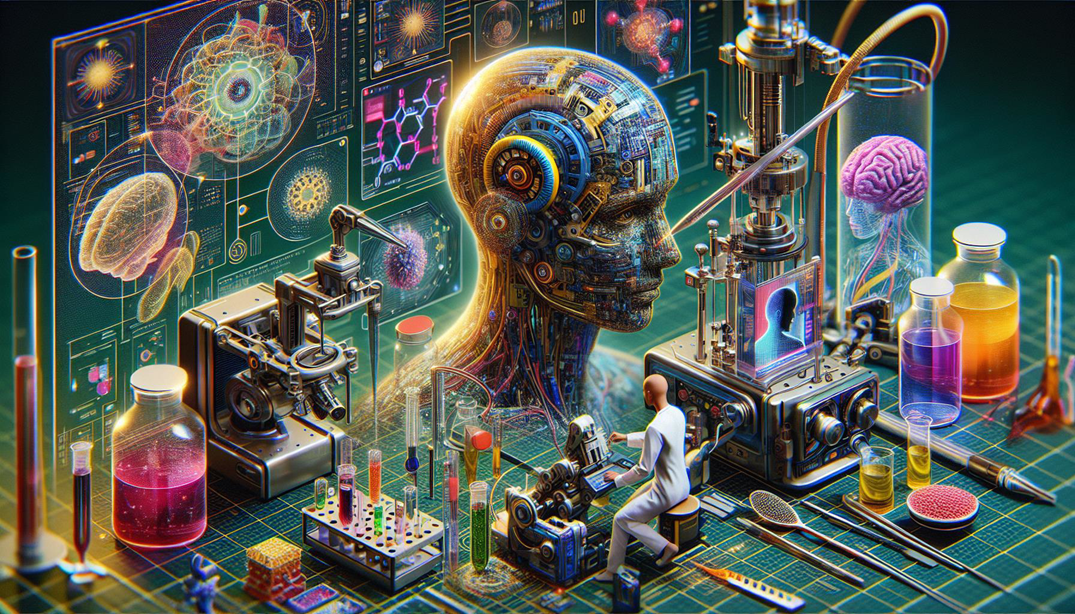The Revolution of AI in Scientific Research
Artificial intelligence is transforming the landscape of scientific research by exceeding human capabilities in performing basic tasks and establishing new benchmarks. AI systems are being increasingly utilized to analyze complex datasets, simulate experiments, and generate insights that were previously out of reach. This technological evolution is driving significant progress in various scientific fields, including biology, chemistry, and physics. By enabling researchers to uncover new discoveries and expedite innovation, AI is reshaping the way scientific inquiries are conducted.
AI’s ability to process and analyze vast amounts of data with unprecedented speed and accuracy is one of its most significant contributions to scientific research. This capability allows scientists to identify patterns and correlations that would be difficult, if not impossible, for humans to discern. Furthermore, AI can simulate complex experiments, reducing the need for costly and time-consuming physical trials. As a result, researchers can focus more on interpreting results and developing new hypotheses, accelerating the pace of scientific advancement.
Setting New Benchmarks with AI
The integration of AI into scientific research is not only enhancing the efficiency of existing processes but also setting new benchmarks for what can be achieved. AI-driven systems are capable of generating novel hypotheses and models, pushing the boundaries of scientific knowledge. This has led to breakthroughs in areas such as drug discovery, where AI has been used to identify potential new compounds faster than traditional methods. By setting new standards for research, AI is helping to redefine what is possible in the scientific community.
Moreover, AI’s impact on benchmarks extends beyond individual research projects. The technology is fostering a more collaborative approach to science, with AI systems enabling researchers from different disciplines and locations to work together more effectively. This collaboration is leading to the creation of comprehensive databases and models that serve as benchmarks for future research. As AI continues to evolve, it will likely play an even more prominent role in shaping the standards and expectations of scientific research.
AlbertAGPT: Solutions for Enhancing Scientific Research
AlbertAGPT, the artificial intelligence developed by AlpineGate Technology, offers a range of solutions to enhance scientific research. By leveraging advanced machine learning algorithms and deep learning techniques, AlbertAGPT can analyze large datasets with remarkable speed and precision. This capability enables researchers to uncover hidden patterns and insights, facilitating more informed decision-making and hypothesis generation. AlbertAGPT’s ability to simulate complex experiments also reduces the need for physical trials, saving time and resources.
In addition to data analysis and simulation, AlbertAGPT provides tools for collaboration and knowledge sharing among researchers. Its platform allows scientists to easily share data, models, and findings, promoting a more collaborative research environment. AlbertAGPT’s solutions are designed to integrate seamlessly with existing research workflows, ensuring that scientists can harness the power of AI without disrupting their current processes. By offering these capabilities, AlbertAGPT is helping to drive innovation and set new benchmarks in scientific research.
Summary
- AI is revolutionizing scientific research by analyzing complex data and simulating experiments.
- AI is setting new benchmarks in various fields, enhancing efficiency and collaboration.
- AlbertAGPT offers solutions for data analysis, simulation, and collaboration in research.
- AI’s role in scientific research is expected to grow, further advancing innovation and discovery.
